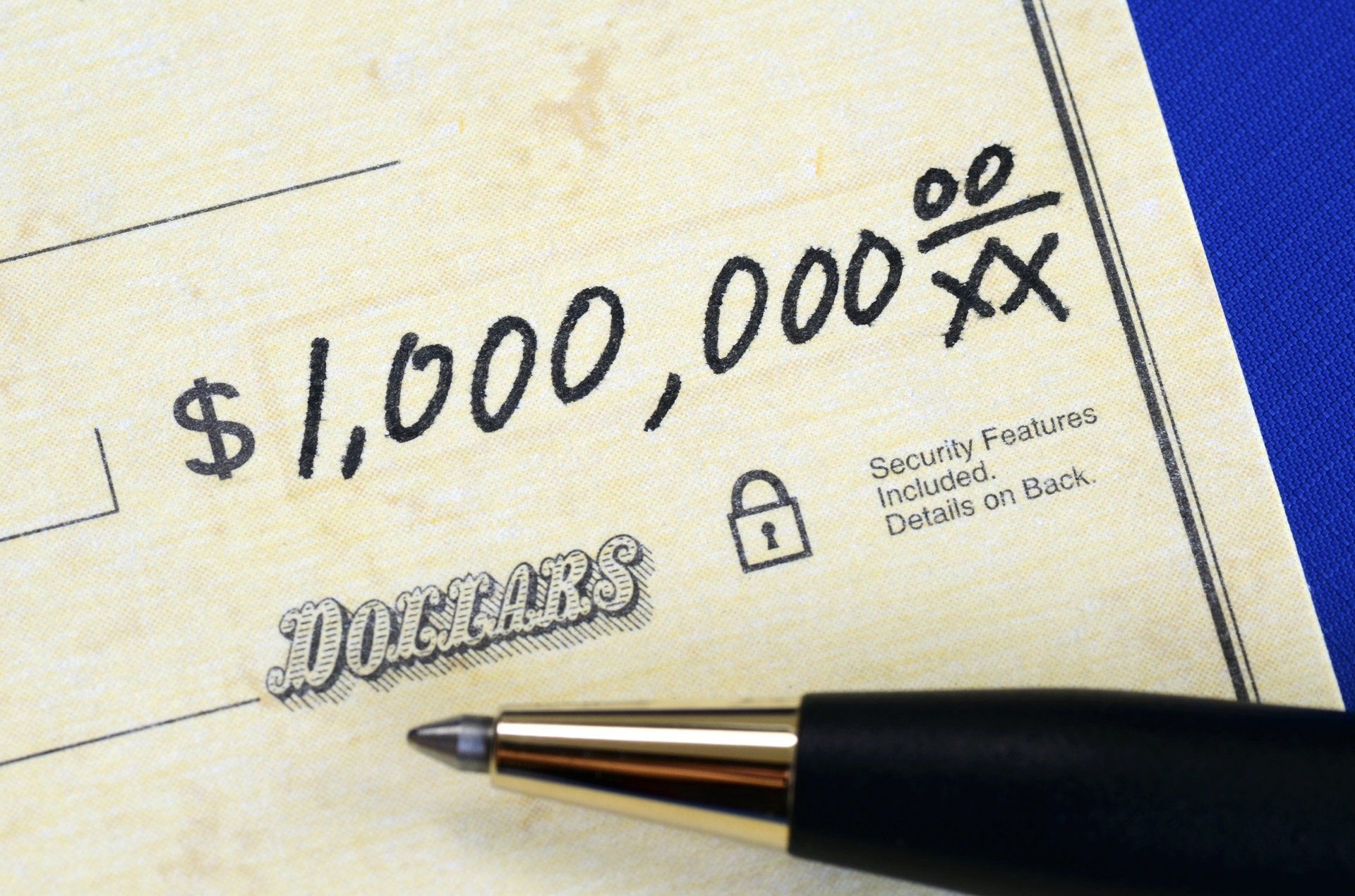Taxpayers Stimulus Checks: What You Need To Know
FAQ
This comprehensive FAQ section provides answers to frequently asked questions regarding the issuance of stimulus checks to taxpayers. Whether you are a first-time recipient or have questions about the eligibility criteria, this guide will provide the necessary information.

Stimulus Checks 2023: What to Expect and When in the New Year - Newsweek - Source www.newsweek.com
Question 1: What is the purpose of the stimulus checks?
The stimulus checks, officially known as Economic Impact Payments, are intended to provide financial relief to individuals during economic downturns. They are designed to boost consumer spending and stimulate the economy.
Question 2: Who is eligible to receive a stimulus check?
U.S. citizens and resident aliens with valid Social Security numbers are eligible for stimulus checks. Income limits apply, with higher earners receiving smaller amounts or being ineligible.
Question 3: How much is the stimulus check amount?
The amount of the stimulus check varies depending on income and family size. The maximum single payment is currently set at $1,400.
Question 4: How will I receive my stimulus check?
Stimulus checks are typically distributed electronically via direct deposit into bank accounts. If you do not have direct deposit set up, you may receive a paper check or a preloaded debit card in the mail.
Question 5: What if I have not received my stimulus check?
If you are eligible but have not yet received your stimulus check, you can track its status through the IRS's website or contact them directly.
Question 6: Can I claim my stimulus check as a tax credit?
If you did not receive a stimulus check or received less than the full amount, you may be able to claim the Recovery Rebate Credit on your tax return.
These FAQs provide essential information about stimulus checks for taxpayers. By understanding the eligibility criteria, payment methods, and potential tax implications, you can ensure that you receive the full benefits intended for your financial well-being.
For further assistance or updates, please visit the official IRS website.
Tips
Understanding your eligibility, payment options, potential impact on taxes, and common scams can ensure a smooth process.
Tip 1: Check Eligibility
To qualify for stimulus checks, individuals must meet certain income and residency requirements per the eligibility guidelines established by the government.
Tip 2: Explore Payment Options
Stimulus payments are typically distributed via direct deposit, paper check, or EIP (Economic Impact Payment) Card. Monitor your bank account or mailbox for payment arrival.
Tip 3: Consider Taxpayers Stimulus Checks: What You Need To Know Impact
Stimulus checks are generally not taxable, but they may impact other tax-related matters like Advance Child Tax Credit payments. Consult with a tax professional for guidance.
Tip 4: Beware of Scams
Fraudulent schemes may attempt to steal your personal information or payment details. Remain vigilant and report any suspicious activity to authorities.
Tip 5: Track Your Payment
The "Get My Payment" tool on the IRS website allows taxpayers to track the status of their stimulus payments, providing peace of mind and avoiding unnecessary inquiries.
Tip 6: Report Income Changes
If your income situation changes, it's crucial to notify the IRS to ensure accurate payment calculations in subsequent rounds of stimulus checks.
Tip 7: Utilize Available Resources
The IRS website and reputable news sources offer valuable information and resources to keep you informed and answer any questions about stimulus checks.
By following these tips, you can navigate the process of receiving your stimulus checks effectively and avoid any potential pitfalls or concerns.
Taxpayers Stimulus Checks: What You Need To Know
Taxpayers Stimulus Checks are an essential component of government economic relief efforts. They provide financial assistance to eligible individuals and families, helping to stimulate the economy and alleviate financial strain. Understanding the key aspects of these checks is crucial for taxpayers to maximize their benefits.
- Eligibility Criteria: Who qualifies to receive stimulus checks? What are the income and filing status requirements?
- Payment Amount: How much can taxpayers expect to receive? Are there different amounts for individuals and families?
Eligibility criteria determine who receives stimulus checks based on their adjusted gross income and filing status. Payment amounts vary depending on individual circumstances, with higher checks typically going to lower-income taxpayers and those with dependents. The checks are designed to provide direct financial relief to eligible taxpayers, helping them meet essential expenses, reduce debt, or save for the future. Understanding these key aspects ensures that taxpayers can accurately claim their stimulus checks and utilize them effectively.

What You Need to Know about Million Dollar Checks - Doane - Source www.doaneanddoane.com
Taxpayers Stimulus Checks: What You Need To Know
The COVID-19 pandemic has had a significant impact on people's lives around the world. In an effort to help mitigate the financial impact of the pandemic, the United States government has issued stimulus checks to taxpayers. These checks are designed to provide direct financial assistance to individuals and families who have been affected by the pandemic.

Democrats Try and Fail to Push Through ,000 Stimulus Checks - The New - Source www.nytimes.com
The amount of the stimulus checks varies depending on the individual's income and filing status. Single filers with incomes up to $75,000 will receive a check for $1,200. Married couples filing jointly with incomes up to $150,000 will receive a check for $2,400. Families with children will receive an additional $500 per child. The checks are being issued automatically to taxpayers who have filed their 2019 tax returns. Those who have not yet filed their 2019 tax returns can still claim the stimulus checks by filing a 2020 tax return.
The stimulus checks are an important part of the government's response to the COVID-19 pandemic. These checks are providing much-needed financial assistance to individuals and families who have been affected by the pandemic. The checks are also helping to stimulate the economy by increasing consumer spending.
There are a number of resources available to help taxpayers understand the stimulus checks. The IRS has a dedicated website that provides information about the checks, including eligibility requirements, payment amounts, and how to claim the checks. Taxpayers can also contact the IRS by phone or mail if they have questions about the stimulus checks.
Conclusion
The stimulus checks are an important part of the government's response to the COVID-19 pandemic. These checks are providing much-needed financial assistance to individuals and families who have been affected by the pandemic. The checks are also helping to stimulate the economy by increasing consumer spending.
The IRS has a dedicated website that provides information about the checks, including eligibility requirements, payment amounts, and how to claim the checks. Taxpayers can also contact the IRS by phone or mail if they have questions about the stimulus checks.
Introducing The Boozer Twins: The Dynamic Duo Of Basketball Excellence, Activision: The Gaming Giant Shaping The Future Of Interactive Entertainment, Kevin Koger: Digital Marketing Expert And Growth Strategist, Top-Notch Industrial Storage Solutions For Maximizing Efficiency And Space, Last Man Standing Cast: A Guide To The Characters And Their Actors, Wesley Bryan: Rising Star Of The PGA Tour, AI-Powered Crowdfunding Platform: Revolutionizing Fundraising With Crwd Stock, Kevin Costner And Jennifer Lopez: Hollywood's Unlikely Duo Takes On Western Adventure, Understanding Tariffs: Impact On Trade And Consumers, Herd Thunder: Marshall Basketball's March To Success,